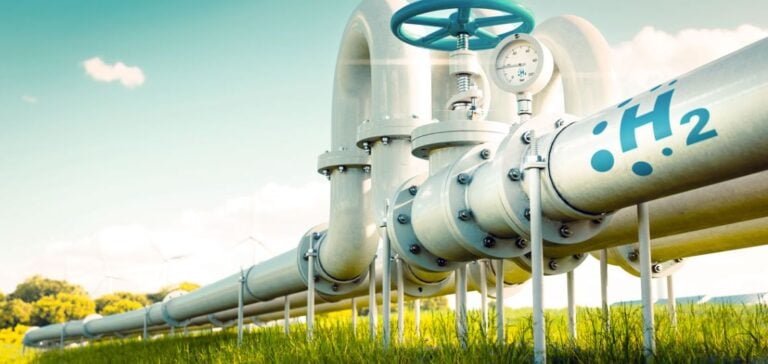Primary Hydrogen Corp. (TSXV: HDRO), a company specializing in natural hydrogen exploration, has formalized the acquisition of the Hopkins H2 Project, located 35 kilometers north of Kapuskasing, Ontario. This strategic project, which includes 31 mineral claims covering an area of 6,920 hectares, aligns with the company’s goal of building a diversified portfolio of promising projects across Canada.
Geological potential and formation mechanisms
The Hopkins project stands out for its potential to naturally produce hydrogen through geological processes such as serpentinization and radiolysis. These mechanisms are supported by local geology, including structures near alkali intrusives and northeast-oriented regional faults. These features increase the likelihood of gas or fluid flows to the surface, as indicated by “forest ring” formations visible near intrusive complexes.
Location and infrastructure
The project benefits from a strategic location with direct access via the Trans-Canada Highway and a developed network of secondary gravel and logging roads. Nearby is the Clay-Howells carbonatite intrusive, known for its rare earth element, thorium, and iron resources. These radiogenic intrusives are linked to the formation of natural hydrogen through radiolysis, enhancing the region’s attractiveness for exploration.
Strategic commitment by the company
Benjamin Asuncion, CEO of Primary Hydrogen, emphasized the importance of this acquisition in the implementation of their growth strategy. According to him, this project is based on solid geological fundamentals and leverages extensive exploration in the region to identify potential sources of natural hydrogen.
The Hopkins project represents a crucial step for Primary Hydrogen as it seeks to capitalize on the growing interest in alternative energy solutions while reducing the environmental impact of energy projects.






















